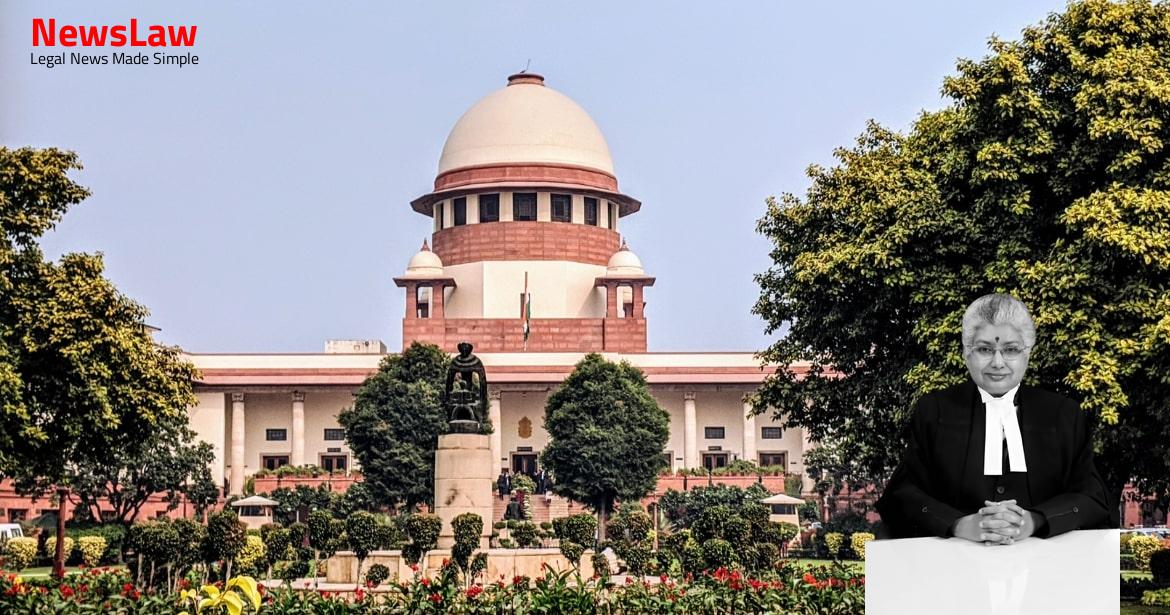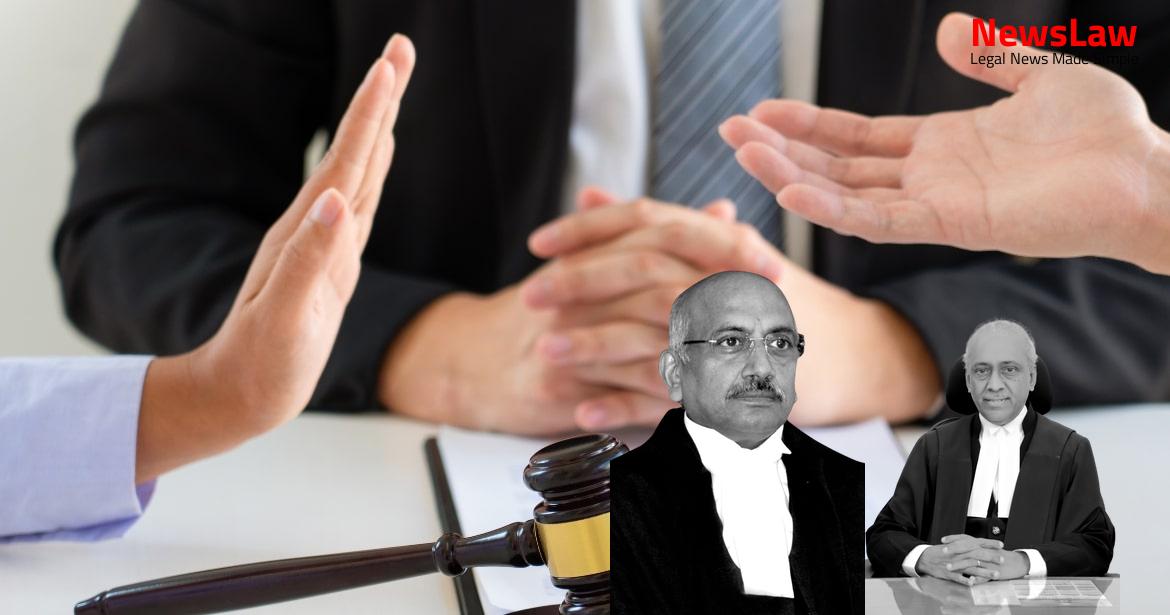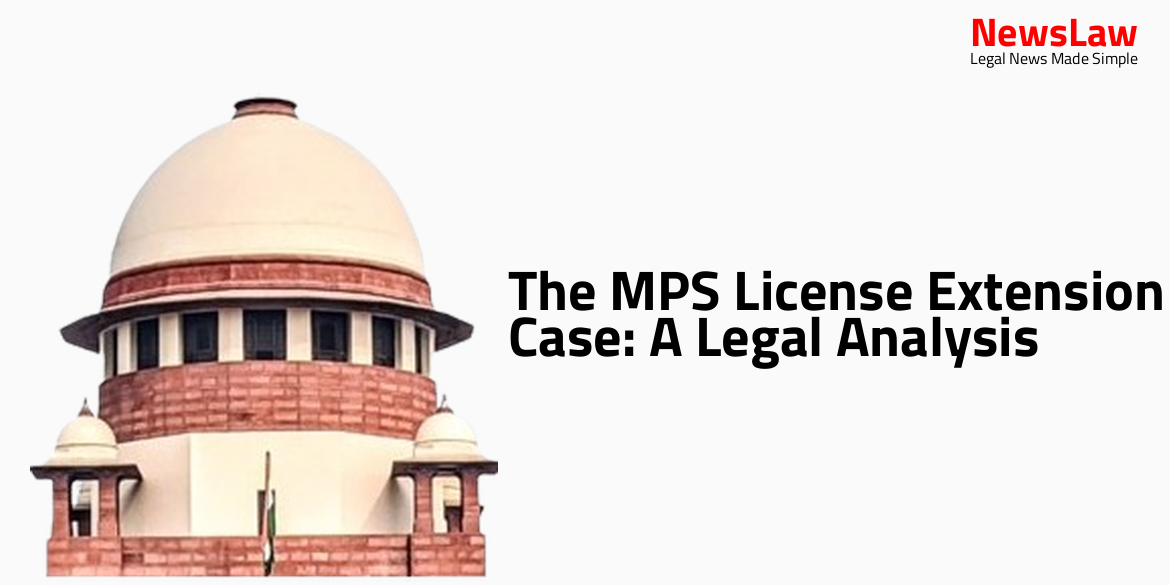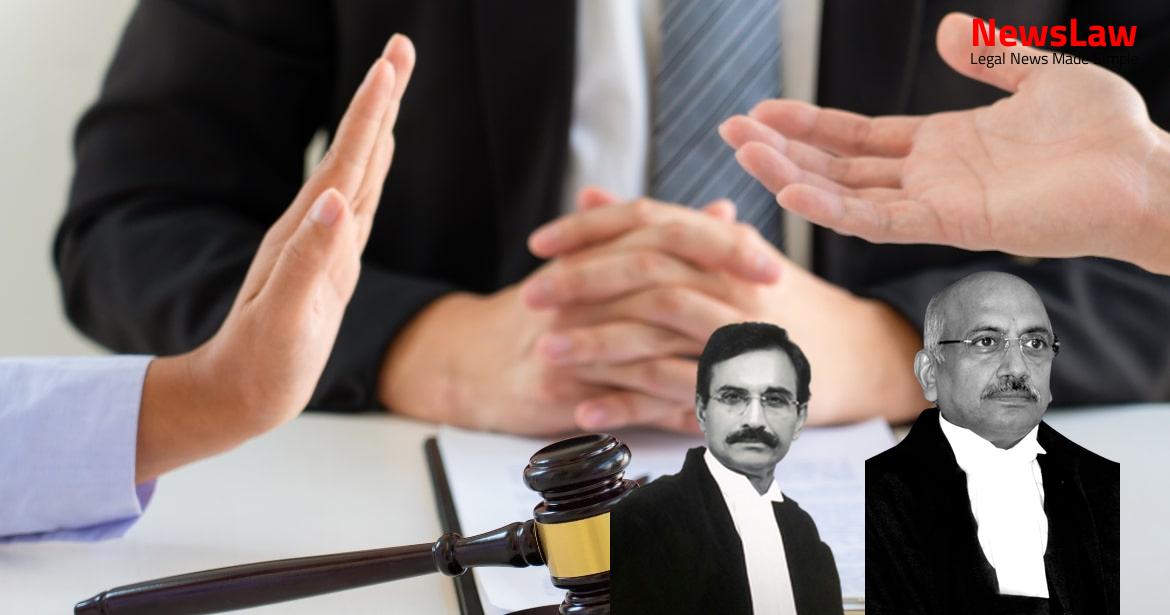This appeal assails the judgment of the Nagpur Bench of High Court of Judicature at Bombay, dated 30 November, 2015 wherein Writ Petition No 2110 of 2003 filed by the Respondents herein was allowed. In the aforesaid background, the Appellant claimed family pension payable to the family of the deceased government employee, Shridar Chimurkar, from the Respondents, by addressing a letter in this regard, dated 18 January, 2000.
No 2166 of 2001 filed by the Appellant and directed the Respondents to consider the Appellant’s claim for family pension by treating him as the adopted son of the deceased government employee, Shridar Chimurkar. That the effect of adoption by a widow would be that the child so adopted would be deemed to be the child of her deceased husband also, vide Vijayalakshmamma vs. That Rule 54 (14) (b) of the CCS (Pension) Rules does not deal with adoption by a widow of a government servant after the death of the government servant. It was further contended that adoption made by a Hindu widow would be deemed to be an adoption by her deceased husband also, as per the provisions of HAMA Act, 1956, and in view of the said position of law, the High Court ought not to have interfered with the findings of the Tribunal.
On a conjoint reading of the aforesaid propositions, what emerges is that an adoption by a Hindu widow would necessarily create a tie between the child so adopted and her deceased husband. It was submitted that Rule 54 (14) (b) of the CCS (Pension) Rules, does not cover adoption by a widow of a government servant, after the death of such a government servant.
However, the said provisions are irrelevant to the present case, which pertains not merely to a question as to the capacity of a Hindu widow to adopt, but involves issues of entitlement of a child so adopted by a Hindu widow, to family pension on the death of the government servant.
Also Read: https://newslaw.in/supreme-court/w-p-crl-no-000491-2022/
Whether a child adopted by a widow of a government servant, subsequent to the death of the government servant would be included within the scope of the definition of ‘family’ under Rule 54 (14) (b) of the CCS (Pension) Rules, and would therefore be entitled to receive family pension payable under the said Rules?
Chapter II of the Act pertains to adoption and prescribes inter-alia, the manner in which an adoption is to be made, the legal obligations created by way of adoption and the consequences that are to follow an adoption. Section 7 pertains to the capacity of a male Hindu to take in adoption, while Section 8 deals with the capacity of a female Hindu to adopt.
Section 12 of HAMA Act, 1956, which is relevant to the present case, lists the effects or consequences of adoption by providing that an adopted child shall be deemed to be the child of his or her adoptive father or mother for all purposes with effect from the date of the adoption and from such date, all the ties of the child in the family of his or her 12 birth shall be deemed to be severed and replaced by those created by the adoption in the adoptive family. However, the present case pertains not merely to a question as to the capacity of a Hindu widow to adopt, but involves issues of entitlement of a child adopted by a Hindu widow, to family pension payable to certain categories of legal heirs of a deceased government servant. Rule 54(14)(b) which is relevant to the present case, defines ‘family’ for the purpose of Rule 54, in the following terms: “(b) “family” in relation to a government servant means – i. The said provision permits a female Hindu who is not a minor or of unsound mind, to take a son or daughter in adoption to herself, in her own right. However, this Court has clarified this aspect by declaring that, on adoption by a widow, the adopted son or daughter is deemed to be a member of the family of the deceased husband of the widow, vide Sawan Ram vs Kalawanti, A.I.R. Rights and entitlements of an adopted son of a Hindu widow, as available in Hindu Law, as against his adoptive family, cannot axiomatically be held to be available to such adopted son, as against the government, in a case specifically governed by extant pension rules. The said provisions do not lend much assistance in the instant case which does not pertain to the rights of the adoptee such as the Appellant herein under Hindu Law, but to his rights and entitlements under the CCS (Pension) Rules. In order to engage with this prong of the matter, i.e., effect of the phrase “in relation to a government servant” as appearing in Rule 54 (14)(b) of the CCS (Pension) Rules, in determining the Appellant’s entitlement to family pension, it may be useful to refer to the decision of this Court in Doypack Systems Pvt. These are words of comprehensiveness which might have both a direct significance as well as an indirect significance depending on the context… In this connection reference may be made to 76 Corpus Juris Secundum at pages 620 and 621 where it is stated that the term “relate” is also defined as meaning to bring into association or connection with.
Therefore, a son or daughter adopted by the widow of a deceased government servant, after the death of the government servant, could not be included within the definition of ‘family’ under Rule 54(14)(b) of the CCS (Pension) Rules. As a measure of socioeconomic justice family pension scheme was devise to help the widows tie over the crisis and till the minor children attain majority to extend them some succour. Therefore, the definition of the term ‘family’ cannot be extended to include those persons who were not even dependents of the government servant, at the time of his death. Further, we are unable to find favour with the argument of the learned Counsel for the Appellant that since the bar contained in Rule 54(14)(b) of the CCS (Pension) Rules against children born or adopted after retirement, seeking family pension, was removed by way of the subsequent amendments to the provision, children adopted at any time after retirement of the government servant, including children adopted by the widow of the government servant after his death ought to be included under the definition of ‘family’ for the purpose of granting family pension. Therefore, the word “adoption” in Rule 54(14)(b)(ii) of the CCS (Pension) Rules, in the context of grant of family pension, must be restricted to an adoption made by a government servant during his/her lifetime and must not be extended to a case of adoption made by a surviving spouse of the government servant after his/her death. This is because the deceased government servant would have had no relationship with the adopted child which would have been adopted subsequent to his demise, as opposed to a posthumous child. The present case is concerned only with the definition of ‘family’ under the CCS (Pension) Rules.
Parties to bear their respective costs.
Case Title: SHRI RAM SHRIDHAR CHIMURKAR Vs. UNION OF INDIA (2023 INSC 49)
Case Number: C.A. No.-000386-000386 / 2023



